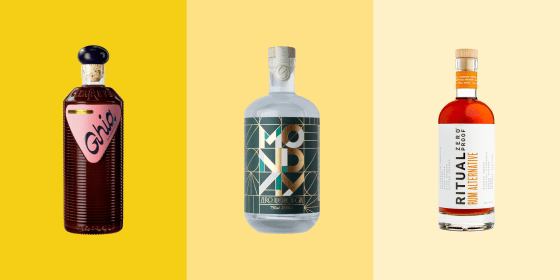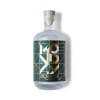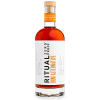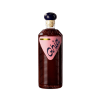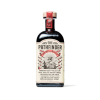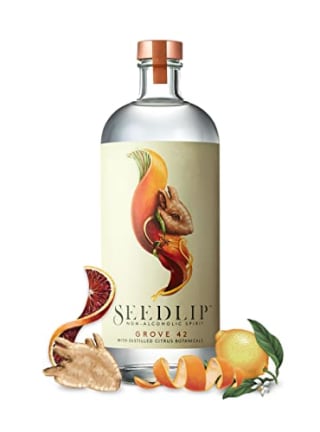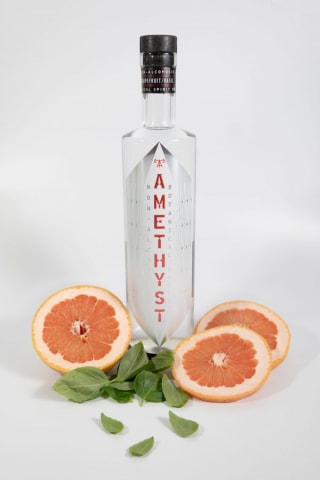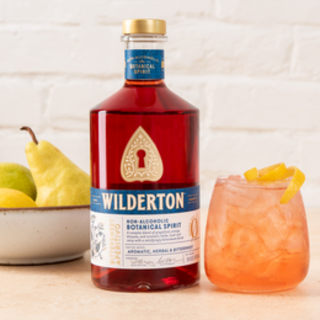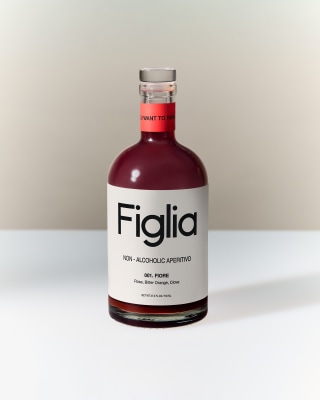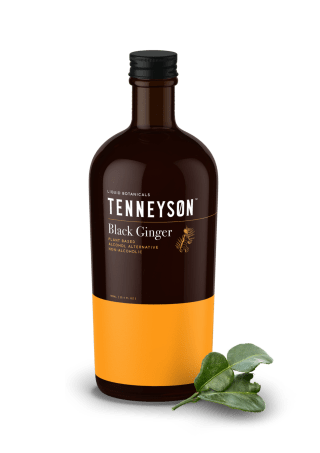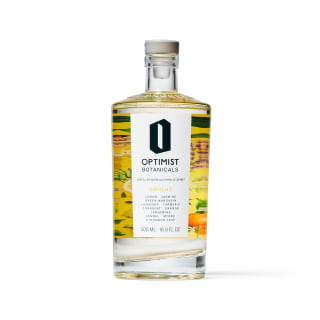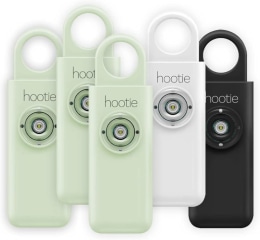“It’s currently the best time in history to be sober,” says Abby Ehmann, owner of Hekate, an alcohol-free bar in New York City. That’s because more people than ever are identifying as “sober curious,” meaning they’re examining their relationship with alcohol and experimenting with not drinking, says Casey McGuire Davidson, a sobriety coach who offers courses through her platform Hello Someday Coaching. As the pool of people looking for spirit, wine and beer alternatives grows, so does the nonalcoholic beverage market. “You used to be stuck with seltzer and a splash of cranberry juice, but that’s not the case anymore,” says Ehmann.
So what are nonalcoholic spirits, and how should you go about choosing from the myriad of options available? I talked to experts about how to shop for non-boozy beverages that fit your taste palate and rounded up some of their favorites, along with some NBC Select staff picks.
Want more from NBC Select? Sign up for our newsletter, The Selection, and shop smarter.
What are nonalcoholic spirits?
Spirits that have 0.5% or less alcohol by volume (ABV) are considered “nonalcoholic,” according to the U.S. Food and Drug Administration. And similar to nonalcoholic wine, there are two types of nonalcoholic spirits: those that imitate the flavor of traditional spirits and those that have botanical ingredients like teas, spices and fruit concentrates. One isn’t better than the other — what you like is a matter of personal preference, experts say. But each type differs in flavor profile and use case, so it’s important to understand what they are before shopping for them.
Imitation spirits
Imitation spirits are analogs of traditional alcoholic spirits, meaning they mimic the flavor of their alcoholic counterparts, says Nick Bodkins, co-founder and CEO of Boisson, a nonalcoholic retailer with locations in New York and California. They typically don’t have a robust enough flavor profile to drink neat or on the rocks, says Chris Marshall, owner of Sans Bar, an alcohol-free bar in Austin, Texas. Instead, most imitation spirits are meant to be a direct replacement for full-strength spirits in cocktail recipes. So if you want to make a nonalcoholic margarita, for example, you can swap out full-strength tequila for your favorite nonalcoholic option.
To make imitation spirits, manufacturers can follow a few different processes, two of which are the most common. The first process involves converting sugar to alcohol through fermentation to create alcoholic whiskey, rum, tequila and more. Spirits then undergo de-alcoholization, leaving behind beverages (often referred to as alcohol-removed spirits) with a similar aroma, flavor and finish to full-strength spirits. The second process involves stopping fermentation in its early stages to prevent alcohol from forming, and then diluting the resulting liquid with water. These imitation spirits don’t have as rich of a flavor as those alcohol is removed from, but they still have a similar taste to their alcoholic counterparts, experts told me.
Botanical beverages
Botanical beverages on the other hand, are not direct replacements for full-strength spirits, so you can’t always use them as substitutes for alcohol in classic cocktails. “They usually have no direct competitor and there’s no alcoholic version of them,” says Marshall. “They’re doing their own unique thing.” You can drink some botanical beverages on their own or mix them with soda water and juices — they’re a great alternative if you don’t like the taste of alcohol-removed spirits.
Brands use different methods to make botanical beverages, which have plant-derived ingredients like fruit and vegetable extracts, concentrates, teas and spices, says Marshall. For example, some brands lean on distillation while others use a process called compounding, which involves mixing the plant-derived ingredients with water.
How I picked the best nonalcoholic spirits
Finding nonalcoholic spirits you enjoy is all about experimentation, says Ehmann. You won’t know what you like and don’t like until you try a bunch of options, so approach the shopping and tasting process with curiosity, she says. Also accept that there’s a learning curve involved in discovering your preferences.
That said, if there are certain cocktails you enjoy, identify what spirits they’re traditionally made with and purchase the alcohol-removed alternatives, says Bodkins. As for botanical beverages, read about the flavor notes and ingredients listed on their label, and consider whether they generally align with your taste palate. It’s also a good idea to try a few alcohol-removed spirits and botanical beverages to understand the difference between them, experts say.
The best nonalcoholic spirits to shop
If you’re looking to stock your bar cart or liquor cabinet, I rounded up our experts’ favorite nonalcoholic spirits along with options NBC Select staff enjoy.
Ehmann recommends using Ritual’s nonalcoholic rum alternative to make cocktails like piña coladas, mojitos, mai tais, daiquiris and rum punches. It has a spicy rather than sugary sweet flavor, giving beverages a little kick, she says. The rum alternative has notes of toasted spices, including cloves and star anise, ripe banana and burnt orange, according to the brand. Davidson is also a fan of this spirit, and says Ritual has easy-to-follow recipes on its website.
Seedlip was the first nonalcoholic spirit I tried and I often see it on mocktail menus at restaurants and bars. I think it’s a great starter nonalcoholic spirit because it comes in four flavors, so you’re covered when you want to make various zero-proof cocktails or mixers. Seedlip’s Grove 42 is citrus flavored; Garden 108 has notes of rosemary, thyme and spearmint; Spice 94 is a warm blend of allspice, cardamom and citrus; and Notas De Agave’s flavor profile include prickly pear, lime, agave and vanilla.
“Monday has one of the best NA gins I’ve found,” says Davidson. “The beautiful, sophisticated art deco bottles also elevate any zero-proof drink you’re making, plus I love the way it looks on your home bar.” You can use the spirit, which has a juniper-forward flavor, to make cocktails like gin and tonics, Negronis, gimlets and martinis.
Amethyst’s nonalcoholic spirits are some of the best to drink on the rocks because they have a bite to them, which the brand achieves by incorporating ingredients like spices and peppers into its mixture, says Ehmann. Amethyst’s spirits come in a few different flavors, but Marshall particularly likes the brand’s Grapefruit Basil beverage, which has a refreshing citrus flavor with an herby twist, he says.
An aperitivo, also called an aperitif, is a light, often bitter beverage served before meals to stimulate your appetite, says Marshall, who recommends this one from Wilderton. It’s made with a blend of grapefruit, orange blossom and herbs like rosemary, giving it a zesty flavor with a bittersweet finish, according to the brand. You can use it to make cocktails or simply add a few ounces to plain soda water.
This is a must-try nonalcoholic digestif, according to Marshall, who says it’s a stronger, sweeter beverage compared to an aperitivo and is made with herbs to support digestion after a meal. It’s fermented from hemp and blended with orange peel, ginger, sage and saffron to create a flavor you can use as a substitute for full-strength amaro, whiskey and vermouth, according to the brand. “Its bitter, oaky notes provide a captivating contrast to the typically over-sweet, sugary nonalcoholic drinks,” says Marshall.
Ghia, one of our favorite women-owned businesses, has aperitifs made with botanical and herbal ingredients, and my favorite is the brand’s berry beverage. Its fruity, juicy flavor is well balanced since it’s equally tart. I like adding it to plain or fruit-flavored berry seltzer and find it especially refreshing to drink over ice in warm weather.
This aperitivo — from another one of our favorite women-owned businesses — has a floral, bitter, aromatic taste profile, according to the brand. It’s made with orange rind, rose extract, ginger juice and spices, and is best enjoyed over ice.
One of Marshall’s favorite nonalcoholic spirits is Tenneyson’s Black Ginger botanical. It’s made with plant-based ingredients like dandelion, lemon balm, bergamot, yerba mate, grape seed and gentian (a flowering plant), giving it a concentrated, robust taste that’s spicy and zesty, according to the brand. You can drink it neat or on the rocks, as well as in mixed drinks.
Nikki Brown, NBC Select senior editor, says Optimist Drinks’ Bright beverage is one of her go-tos for mocktails. “The flavors are fresh beyond words and the bottle is pretty enough to display,” she says. It has citrus, floral and herbal notes, and you can use it similarly to a lemon vodka, according to the brand. Optimist recommends mixing it with tonic or soda water before drinking over ice.
Frequently asked questions
Since they start out as full-strength spirits, alcohol-removed spirits contain trace amounts of alcohol after dealcoholization. Spirits with 0.5% or less alcohol by volume (ABV) are considered “nonalcoholic,” according to the U.S. Food and Drug Administration. However, brands can only use alcohol-free” language when beverages have no detectable alcohol, according to the FDA.
Each nonalcoholic spirit has different storage requirements to make it last as long as possible. Generally speaking, however, most nonalcoholic spirits are shelf-stable, similar to alcoholic spirits, says Marshall. “You get the experience of being able to leave nonalcoholic spirits out on a shelf or bar cart like alcoholic spirits,” he says. Once opened, Marshall suggests enjoying them for up to six months, but be sure to visit the brand’s website or read the packaging to see if there’s a specific "best by" date you should keep in mind.
Interest in nonalcoholic spirits tends to peak around Dry January and Sober October, months during which some people take extended breaks from alcohol. However, many people are incorporating these beverages into their lifestyles year round, prompting more retailers to carry them and offer them online. In addition to local stores in your neighborhood and their websites, some brands are available at large retailers like Amazon, Target and Walmart, in addition to alcohol-specific online delivery services like Drizly. Nonalcoholic retailers like Boisson, The New Bar (one of our favorite Latino-owned businesses) and The Zero Proof ship beverages across the country, and you can also use grocery delivery services like Instacart and Gopuff.
Meet our experts
At NBC Select, we work with experts who have specialized knowledge and authority based on relevant training and/or experience. We also take steps to ensure that all expert advice and recommendations are made independently and with no undisclosed financial conflicts of interest.
- Abby Ehmann is the owner of Hekate, an alcohol-free bar in New York City.
- Nick Bodkins is the CEO and co-founder of Boisson, a nonalcoholic drinks retailer with locations in New York and California.
- Chris Marshall is the owner and founder of Sans Bar, an alcohol-free bar in Austin, Texas.
- Casey McGuire Davidson is a sobriety coach who offers courses through her platform Hello Someday Coaching.
Why trust NBC Select?
I am a reporter at NBC Select who writes about food and beverages, including recent stories on olive oil, honey, coffee subscriptions and nonalcoholic wine. For this article, I interviewed four experts about how to shop for nonalcoholic spirits and rounded up their picks, and included some of NBC Select staff favorites.
Catch up on NBC Select’s in-depth coverage of tech and tools, wellness and more, and follow us on Facebook, Instagram, Twitter and TikTok to stay up to date.

